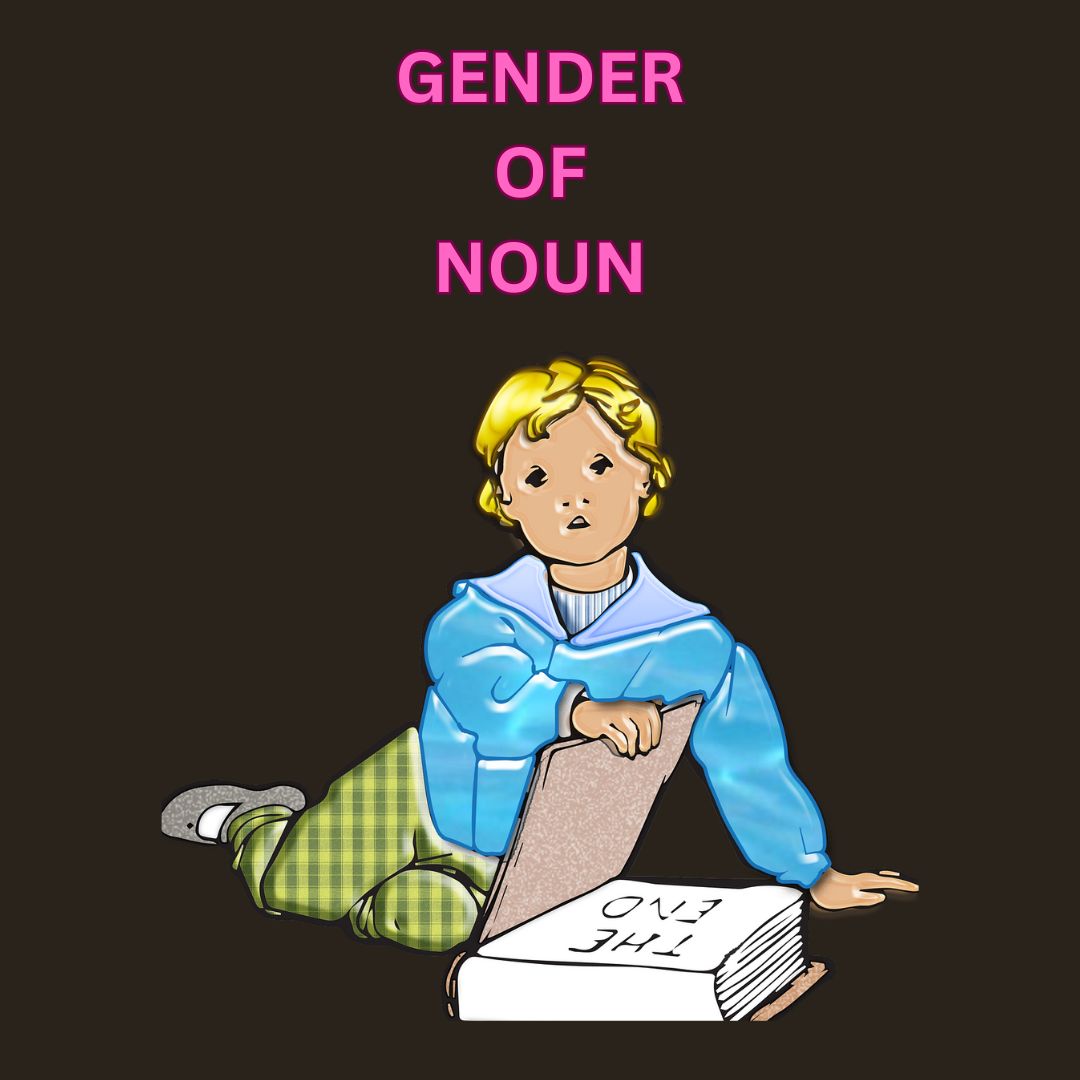The Gender of the Noun

Gender of the Noun
In many languages, including English, nouns can be classified into different genders. However, unlike some other languages, English does not have a grammatical gender for nouns. In English, nouns are not inherently masculine, feminine, or neuter.
Personal pronouns: He and She can be used to refer to gender:
Instead, English uses gender-specific pronouns (such as “he” and “she”) to refer to people or animals when their gender is known.
For example:
He is my brother.
She is my sister.
Gender connotations: ” mother” and ” father”:
English nouns themselves do not have grammatical gender, but they can be associated with certain gender connotations.
For instance, words like “mother” and “father” are typically associated with feminine and masculine roles, respectively.
All male names relate to the type of masculine gender.
and they can be substituted by a word he:
-Where is your son?
-He is at school.
All the female names refer to the type of feminine gender.
and can be substituted by the word she:
His older sister said that she would be at the cinema the next day.
The animal names should be related to the type of neuter gender if they are substituted by the pronoun it:
-Where is your dog?
-It is sleeping.
The elephant broke its leg.
But in some other cases, while referring to the gender of animals, he or she can be used:
This is my cat. He is three years old.
It is for Neuter Gender
Inanimate things and object names belong to the neuter gender. While referring to them, it can be used:
Please go and get my purse; it is in my bag.
Some animate objects can be used in masculine and feminine genders at the same time:
pupil (a boy)-pupil (a girl)
friend (a boy)-friend (a girl)
teacher (a man)-teacher (a woman)
cousin (a brother)- cousin (a sister)
wolf (he)- wolf (she)
But if there is a necessity to point out exactly the type gender of a given object, the following words can be added:
a boy friend, a girl friend
a he-cousin, a she-cousin
a he-wolf, a she-wolf
However, there are some cases where the gender of a noun is explicitly stated, such as when referring to occupations or titles:
For example:
actor (masculine) and actress (feminine)
waiter (masculine) and waitress (feminine)
steward (masculine) and stewardess (feminine)
Common suffixes to form feminine nouns from masculine nouns:
In English, there are several common suffixes that can be used to form feminine nouns from masculine nouns.
Examples:
-ess: This suffix is commonly used to form feminine nouns, indicating a female counterpart to a male noun.
actor (masculine)- actress (feminine)
lion (masculine)- lioness (feminine)
host (masculine)- hostess (feminine)
poet (masculine)- poetess (feminine)
god (masculine)- goddess (feminine)
-ette: This suffix is often used to indicate a smaller or female version of a noun.
drummer (masculine) drummerette (feminine)
kitchen (masculine) kitchenette (feminine)
corvette (masculine) corvetteette (feminine)
-trix: This suffix is used to denote a female agent or doer of an action:
executor (masculine)- executrix (feminine)
dominator (masculine)- dominatrix (feminine) [Note: This term has a specific connotation in a different context.]
-woman: This suffix is used to indicate a female version of a noun.
policeman (masculine) and policewoman (feminine)
fireman (masculine)-firewoman (feminine)
salesman (masculine)-saleswoman (feminine)
These suffixes are commonly used, language is dynamic, and usage can vary over time.
But, not all nouns have specific feminine counterparts formed by suffixes. In many cases, the same term is used for both genders.
For example:
doctor (used for both males and females)
teacher (used for both males and females)
engineer (used for both male and female The gender of the country’s and ship’s names
The country’s name refers to the type of feminine gender while observing it as a political unit and using the word:
Portugal has an absolute advantage in the production of both goods. Does she still have reasons to trade with England?
A word ship refers to feminine gender and is substituted with the pronoun she.
The ship left the port in the evening. She has a cargo of coal on board.
About Nouns. Common and Proper Nouns